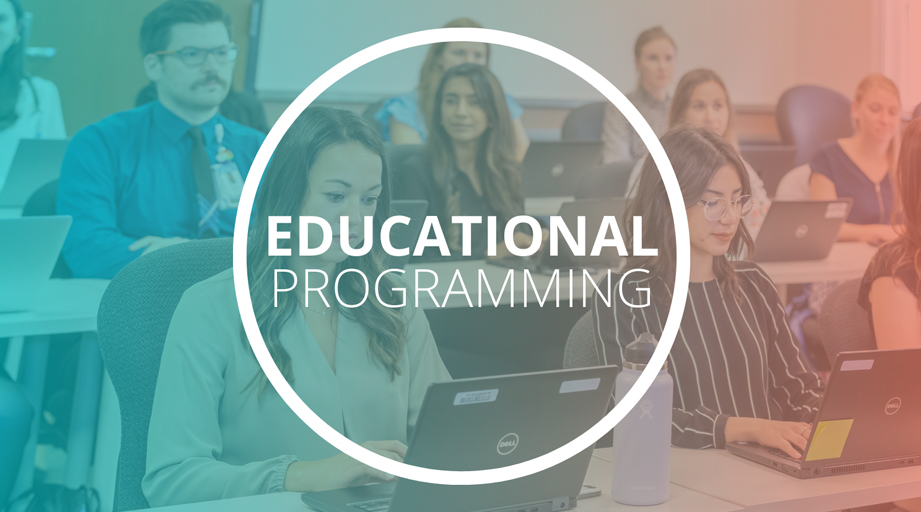

Drug shortages have been a daily part of pharmacy practice for about two decades and, more recently, a conversation topic for the policymakers and the public. Could that shift in public awareness mean positive change is coming?
“I think we might be approaching a unique window of opportunity to advocate and work for change,” said James Hoffman, senior vice president for quality and safety at St. Jude Children's Research Hospital in Memphis, Tennessee.
Hoffman is the moderator for the Dec. 5 Midyear session Drug Shortages: Looking Back for Patient Safety and Forward for a Resilient Supply Chain. He was interviewed about the session in advance of the meeting. What follows is an edited transcript.
ASHP: What are the best reasons to attend this Midyear session?
Hoffman: We’ll have two great presenters. Our first speaker, Katie Suda, is doing federally funded research on drug shortages, including shortages during the COVID-19 pandemic. She has cutting-edge, new information. We framed that part of the session as looking back on shortages from the perspective of her federally funded research.
Our second speaker, Erin Fox, is a national expert on shortages. She really brings home the bigger picture and what can be done to create a more resilient supply chain. That’s the looking forward part of the session.
We also want to encourage active audience participation. We want the attendees to talk about what they do to take action on shortages. There’s a lot of granular things we know pharmacists do constantly to manage drug shortages. We want people who attend to learn from each other as well.
What are the most serious drug shortage and supply chain issues that are affecting your organization and its patients?
There’s a huge intersection between safety and drug shortages. When shortages occur, there’s a real medication safety risk and even an outcomes risk.
In my almost 20 years at St. Jude, we have been challenged by shortages for pretty much the whole time. The severity waxes and wanes, but this year has been especially bad. It seems like everything from acetaminophen to cisplatin is affected by shortages.
One of the exciting things about working at St. Jude is our mission to advance cures for catastrophic disease such as childhood cancer. Curing children with cancer typically depends on chemotherapy. Some of the serious shortages this year involve curative chemotherapies for children with cancer that really don’t have great alternatives.
During the pandemic and at other times in the past, we often had workarounds. We could compound medications if the formulation we needed wasn’t available.
If there’s no cisplatin or methotrexate, kids with cancer just don’t get their chemo. It’s that simple, and it’s that bad.
We have been fortunate to not run out of these drugs at St. Jude this year, but our supply did dwindle. It was really sobering how close we got to running out.
What makes you optimistic about progress toward eliminating drug shortages?
For about the last 12 months, I think the public has really paid more attention to drug shortages. They’ve seen these shortages layered on top of all the pandemic-related supply chain issues that have touched our daily lives. So there seems to be a greater and more widespread understanding right now than in the past, and maybe a unique window to press for advocacy on shortages.
Working with the St. Jude government affairs team, I attended several congressional meetings this fall, and there was genuine interest in learning more from everyone we saw on Capitol Hill.
Are there any new ideas around drug shortages that pharmacists should know about?
On one hand, it’s frustrating that we’ve been at this for years and years, and it seems like the same story again and again. But I believe there’s starting to be a deeper conversation about how we need to invest and create a long-term sustainable and resilient drug supply, especially for generic products.
A change over the last year is that we’re starting to see it framed as a national security and preparedness issue, which brings different perspectives, especially since a large proportion of our drugs are coming from outside the United States.
The question is, will action really be taken? And how can we encourage productive dialogue and action?
The session Drug Shortages: Looking Back for Patient Safety and Forward for a Resilient Supply Chain, takes place Tuesday, Dec. 5, 9:30–10:45 a.m., at Anaheim Convention Center Room 213b, Level 2. Hoffman will be joined by session faculty Erin R. Fox, associate chief pharmacy officer at University of Utah Health, and Katie J. Suda, professor of medicine at the University of Pittsburgh School of Medicine.






